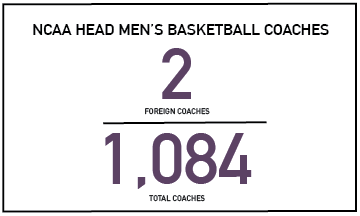'First Days in America'
We are finding, coaching and training public media’s next generation. This #nextgenradio project is created in Reno, Nevada, where six talented student journalists are participating in a week-long state-of-the-art training program.
In this project, six immigrants talk about how their first days in America shaped their lives today.
Greek basketball coach sidelined from opportunities in the United States

Dimitrios Kyriakou fell in love with basketball at 13, an age he claims as old by Greek standards. “I was very fast,” said Kyriakou. “I could jump very high with being a short guy.”
At age 21, he coached his first game. He said the cheering crowd ignited his adrenaline. He knew he’d found his passion.
In 1988, Kyriakou arrived in New York City from Thessaloniki, Greece. Initially drawn to the merit-based ideology of the United States, he began to pursue a bachelor’s degree at Pace University in Manhattan. On his first night in his new apartment near Times Square, he woke up to the sound of gunshots and police sirens. He described his new home as a jungle, unfamiliar and hectic.
“It was kind of a rough impression,” said Kyriakou.
Kyriakou’s initial perception of New York quickly changed after he attended his first basketball game at Madison Square Garden. He walked in, excited to see the New York Knicks play the Philadelphia 76ers. He still remembers Philadelphia’s star player at the time, Charles Barkley, played a phenomenal game. Barkley scored 43 points, beating the Knicks.
“I still have the New York Knicks in my heart. You know it’s part of me,” said Kyriakou.
Greek basketball coach sidelined from opportunities in the United States
In Europe, he established a successful career coaching several basketball teams, including the professional Greek team, Aris Thessaloniki.
According to Kyriakou, the coaching style in Europe is different from the United States. Kyriakou attributes these differences to the level of physical ability by American players.
Kyriakou said most European players aren’t as tall as American players. European coaches tend to focus on strategy to get around this physical disadvantage. They often develop detailed plays on the court.
“You’re tall, handsome and fast and I’m short, fat and ugly,” said Kyriakou. “The only way I can stop you is with detail.”
LEFT: Coach Dimitrios Kyriakou celebrates a victory surrounded by members of his former basketball team. He coached several teams that produced National Basketball League Players.
PHOTO COURTESY OF DIMITRIOS KYRIAKOU
RIGHT: Dimitrios Kyriakou, pictured in the E.L. Weigand Fitness Center, said if he was still in Greece today, he would probably be a head coach for a professional team.
EMILY MACDIARMID / NEXTGENRADIO
“Wherever I go I hear the same thing,” said Kyriakou. “It’s not what you know or how well you know it. It’s who you know.”
According to Kyriakou, the U.S. basketball system is not open to foreign coaches, especially in collegiate basketball. A 2018 diversity report from the National Collegiate Athletic Association showed that out of 1,084 men’s basketball coaches, only two were foreign.
“That was my dream, to have them live the American experience,” said Kyriakou.
But Kyriakou hasn’t completely given up his dream to coach in the U.S. After finishing his Ph.D., he aims to find a career in coaching. He believes the skills he’s gathered over the past few decades will add value to the American basketball system.
“What is next for me?” asked Kyriakou. “I don’t really know. Honestly, I’m expecting life to show me the way.”

EMILY MACDIARMID / NEXTGENRADIO
STUDENTS TALK


